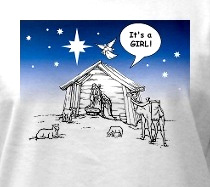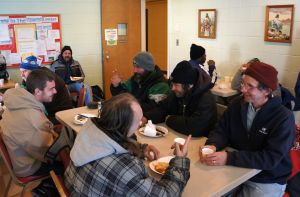Acts 17: 22-31
New Ark United Church of Christ,
Newark, DE
May 25, 2014

When
I first read this passage in Eugene Peterson’s The Message, I was struck by his interpretation of ‘an unknown God’
as ‘the God nobody knows’. The first
thing I thought of was the song Ray Charles made famous, “You Don’t Know Me”.
You give your hand to me
And then you say hello
And then you say hello
And I can hardly speak
My heart is beating so
My heart is beating so
And anyone can tell
You think you know me well
You think you know me well
But you don't know me
No you don't know the one
Who dreams of you at night
Who dreams of you at night
And longs to kiss your lips
Who longs to hold you tight
Who longs to hold you tight
To you I’m just a friend
That's all I've ever been
That's all I've ever been
Cause you don't know me
Afraid and shy, I let my chance go by
A chance that you might love me too
You give your hand to me
And then you say goodbye
A chance that you might love me too
You give your hand to me
And then you say goodbye
I watch you walk away; all I can do is cry
Oh you will never know
The one who loves you so
Oh you will never know
The one who loves you so
No, you don't know me
It
got me thinking about all the different images we have for God. In that song we would have the image of God
as an unrequited lover, who dreams of us and longs to hold us tight but watches
us walk away, that God that nobody knows.
Scripture
is replete with a variety of images and names for God. God is the Creator, Maker of the heavens and
the earth, the Almighty One, the great I AM, our Rock and Refuge, our Shield
and Deliverer. God is our Shepherd, kind and merciful, gracious and slow
to anger. God is Warrior, King, the Most
High God. God broods over us like a Mother
Hen, fights for us like a she-bear robbed of her cubs. God gasps and pants for us in labor
pains. God has compassion for us as a
mother who nurses her child. God is the
Spirit of Wisdom, understanding, counsel, strength, and knowledge.

Images
of God can be doorways through which we can experience God’s presence, and they
can become idols and obstacles to that same presence. Gender can be both a doorway and an idol or
obstacle, depending on our spiritual journey.
When I was a young mother, I needed a mother in heaven, who could
transcend the gravity of earth and yet inhabit it, who was and is stronger and
wiser than me, who lives in the dark corners as well as the light spaces.
She sits with me
at
the kitchen table
Her eyes brighter than mine
She drinks tea, listens, waits
for
me to speak
She is in the oven
in
the juices, the rising bread
Her heat under the boiling water
When I burn my hand
we
both say “Damn!”
She is in the dirty bath water
the
soiled sheets
and
the bottom of the diaper pail
When my child whines, cries “Mommy”
for
the umpteenth time that hour
She becomes the strong steady nerve
I
didn’t know I had
She understands when I lose it—
she
soothes my guilt
She’s in the whisper, my daughter’s
warm hair
smell,
the squeal of delight, the “hopping
frog”
through the kitchen that rattles the
cupboards
She is Mother
full
and empty
silence
and clamor
peace
and fury
sweetness
and shit
She is not too much God for all this
to
be beneath her
Oh no. She is beneath me
further
descending beyond anything
I
dare
She has saved me more times than I
can number
(c) 1999 Cynthia E. Robinson
Many of our images of God have lost their shock value, that is, their ability to surprise us and startle us out of what we think we know about God. We tend toward the ones that comfort us, that nurture our sense of self and our own image of God.
The other day on Facebook I posted a quote by author Brené Brown that gave me one of those startling images of God. She wrote, “Don’t try to win over the haters; you are not a jackass whisperer.” I posted it with my own thought that, no, I am not one but I’m hoping God is.
I am hoping that God is a jackass whisperer because there are times I need one. There are times I can be tuned into only one radio station: WIFM – What’s In It For Me? The human race needs tender words of love and compassion, words whispered with care, that say to us how rare and precious we are and this earth is, words that can discomfort us, knock us off our you-know-what, and wake us up to what is good and right and true.
I like this God that nobody knows, that may still have the capacity to catch us off-guard, disturb us, make us think differently, feel deeply, forgive freely, give thanks constantly, do justice relentlessly. Perhaps this God that nobody knows is also the God of the spiritual but not religious.
The apostle Paul, in his speech to the Athenians, is speaking to what we would call the ‘unchurched’ – those who have a spiritual faith or as columnist Jeffrey Gentry put it this week, “Although I, like most religiously unaffiliated Americans, believe churches help build and strengthen community bonds and generally benefit society, I am not actively looking for a church that would be right for me.”
To a certain extent, Paul sounds and acts like a salesman. These Athenians, like many Americans today, like to discuss anything new, even if it’s just spin. Paul sees an opportunity to preach, to fill in what looks like a gap in religious belief, to answer an unanswered question. Paul quells their fears and ours: God is not remote, God is near. God doesn’t play hide and seek with us; God makes it possible for us to actually find God. We live and move and have our being in and with God.
Paul says that it was okay to have this unknown God when we didn’t know any better, but now that we have Jesus, we ought to know better. Knowing Jesus means a radical life change! But then again, how well do we know Jesus and do we really want to know him any better than we know God? In this story Paul is speaking from his own experience. To him, God made known in Jesus means a radical life change: from being a persecutor of Jesus followers to being one of them, from being a hater to being one of the lovers, to knowing himself to be one of the loved. We are all God’s offspring; we’re all created from the same stuff.
Not many appreciated what Paul had to say. Some laughed at him when he spoke of Jesus being raised from the dead. Others wanted to hear more. Not much has changed.
We are all just trying to figure out the answers to life’s persistent questions: how to live, how to be happy, how to love, how to be kind, how to live with ourselves and each other when we’re not, how to leave the world a better place. In order to do that, I know that I need the God that I know through the life, death, and resurrection of Jesus. But I also know that I need the God that nobody knows, the God that is still aching to know us, surprise us, shake us up, love us, the One willing to go to any lengths to bring us home.
Afraid and shy, I let my chance go by
A chance that you might love me too
You give your hand to me
And then you say goodbye
I watch you walk away; all I can do is cry
Oh you will never know
The one who loves you so
No, you don't know me
Amen.






